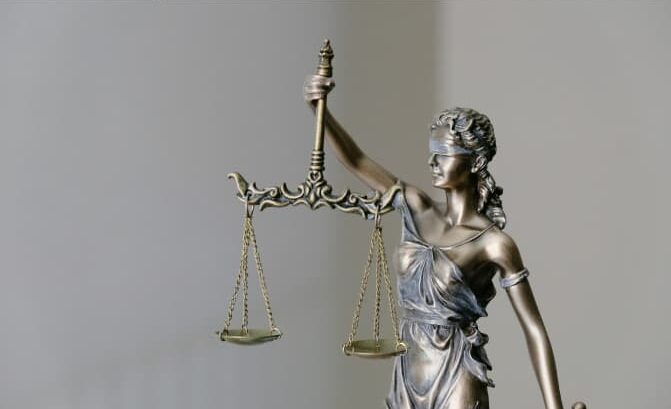Personal injury liability refers to the legal obligation an at-fault party has to financially compensate a victim for the injuries and damages they caused due to an accident. According to legal standards, we all have a duty to act as a “reasonable person” who avoids actions that could cause harm to others. If someone breaches that duty and causes an accident, they could be held liable for injuries and damages in a personal injury case.
Determining who is liable in a personal injury case can become complicated depending on the nature of the accident and the number of parties who could potentially be held responsible. That is why it’s best that you consult with an experienced personal injury attorney to discover who could be at fault for your accident and to help you gather substantial evidence.
At Ashcraft & Gerel, we have highly experienced attorneys in Washington, D.C., Maryland, and Virginia for personal injury cases, and we offer free, no-obligation case reviews to carefully assess your unique situation. Our lawyers are knowledgeable, thorough, and passionate about securing justice. We can help you determine who to hold responsible so you can seek maximum compensation.
What Are the Types of Personal Injury Liability?
There are several types of personal injury liability, and the type applicable to your case will depend on how and where your injury occurred. Each kind of liability comes with its own specific legal considerations, which a skilled attorney will be able to help you navigate.
General Negligence Claims
General negligence claims are commonly used to determine liability in personal injury cases. Under general negligence, you, the plaintiff, must prove that the defendant acted recklessly, unreasonably, or carelessly, resulting in your injuries and subsequent damages (hospital bills, lost pay, repairs, etc.).
In order for the defendant to be held liable you must prove:
- They owed you a duty of care
- They breached that duty of care
- That breach directly caused the accident which resulted in your injuries
- The damages you suffered were a direct result of your injuries
Depending on the circumstances of the accident, it can be difficult to prove that an individual acted negligently. That’s why it is essential to seek the help of a personal injury lawyer who can gather witness statements, expert testimonies, and detailed documentation of the accident to determine and help prove liability.
Strict Liability
A defendant could be held responsible for your damages under strict liability, which doesn’t require you to prove ill intent or negligence. This type of liability often applies in product liability cases when defective or inherently dangerous products are sold to consumers and cause serious harm.
Vicarious Liability
When the negligent actions of one party cause another party to be held liable for damages this is called vicarious liability, or imputed negligence. Say, for example, a retail employee’s reckless actions led to the injury of a customer. The employer may be held liable for any resulting damages because they are technically responsible for their employees while they are working. There must be a “supervisory role” between parties for vicarious liability to apply.
Negligence Per Se
In some cases, the defendant has the burden of proof instead of the plaintiff. This burden is shifted from the plaintiff under the legal doctrine of negligence per se, which translates to “negligence in itself.” For this to be applicable to a personal injury case, the defendant must have broken a law or regulation without a reasonable excuse. Negligence per se can be applied in car accident cases or truck accident cases if the driver violated the speed limit and caused an accident.
Holding Multiple Parties Liable in a Personal Injury Case
There are instances when a personal injury case is relatively straightforward and it is easy to determine liability. However, many cases can become complicated because of the need to prove the liability of multiple parties. Failing to hold the right negligent parties liable could result in your inability to seek maximum compensation. It’s essential that you consult with an experienced personal injury attorney to help you determine everyone who may be responsible for your injuries and damages.
For example, car and truck accident cases can easily have multiple at-fault individuals and/or companies, including, but not limited to, the following:
- The driver
- The driver’s employer
- The vehicle’s mechanic
- A trucking company
- A rideshare company
- A parts manufacturer
What is Contributory Negligence? How Does It Affect My Personal Injury Case?
Another important factor to consider when determining liability is the extent of your negligence in causing the accident. Ashcraft & Gerel fights for the rights of individuals in Washington, D.C., Virginia, and Maryland, and in those areas, a strict doctrine of contributory negligence is followed. Under this doctrine, if you are found to have partially caused your accident to any degree – even 1% – by being negligent of your own safety, you could be completely barred from seeking compensation for your damages.
The defending party or parties will do everything in their power and exhaust all resources to try and prove you played a role in causing your accident. If they are successful, your case could be thrown out. This is one of the many reasons why you should choose a personal injury law firm that has a long and successful track record and find an attorney who will fight to defend your innocence and rights.
RESULTS THAT MATTER

Personal Injury Liability Can Be Complicated - Let Us Help!
Ashcraft & Gerel has been helping individuals in the DMV area seek justice and maximum compensation since 1953. Our law firm has grown into a powerhouse of adept lawyers who have handled a diverse range of personal injury cases, mass torts, and more. We will passionately and skillfully advocate for your rights and seek to hold all negligent individuals responsible for your injuries and damages.
Entrust us with your case, and let our unparalleled expertise work in your favor while you focus on healing. Take the first step to getting your life back on track, and contact us today for a free, no-obligation case review.
- Why Hire an Attorney for Your Injury Case?
- When Should You Contact a Personal Injury Lawyer?
- Do You Have a Personal Injury Case?
- Can You Afford a Personal Injury Lawyer?
- What Damages Can You Collect in a Personal Injury Case?
- How Is the Value of Damages Determined for Your Claim?
- How To Get The Most From Your Personal Injury Settlement
- What Evidence Is Needed for a Personal Injury Claim?
- What Is the Process for Starting Your Personal Injury Case?
- What Should You Expect From Ashcraft & Gerel During Your Case?
- Why Ashcraft & Gerel Might Not Take Your Case
- How To Get The Most From Your Personal Injury Settlement

